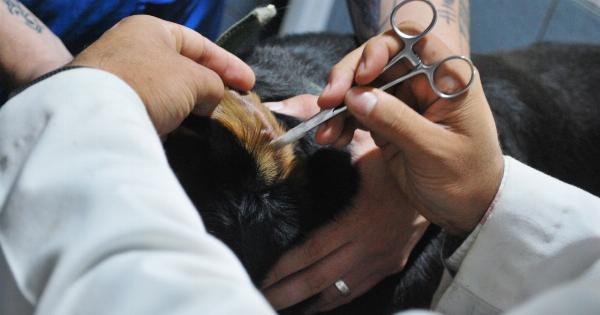Summertime is a season filled with fun outdoor activities, from swimming to concerts and festivals. However, it is important to remember to take care of our ears during this time.
Otitis, also known as swimmer’s ear, is a common ear infection that can occur during the summer months. In this article, we will discuss what otitis is, how it can be prevented, and the steps you can take to protect your ears this summer.
What is Otitis?
Otitis, commonly referred to as swimmer’s ear, is an infection of the outer ear canal. It is usually caused by water remaining in the ear after swimming or bathing, creating a moist environment that allows bacteria or fungi to thrive.
The warm summer weather often leads to increased water activities, making otitis more prevalent during this season.
Symptoms of Otitis
The symptoms of otitis can vary in severity, but common signs and symptoms include:.
- Ear pain or discomfort
- Itching in the ear canal
- Redness and swelling of the ear
- Drainage of clear, yellow, or pus-like fluid from the ear
- Muffled or decreased hearing
Preventing Otitis
Preventing otitis is essential, especially during the summer months when water activities increase. Here are some measures you can take to protect your ears:.
1. Dry your ears thoroughly
After swimming or bathing, make sure to dry your ears thoroughly. Gently tilt your head to each side to allow any excess water to drain out. You can also use a clean towel or a hairdryer on a low setting to dry the ears.
2. Avoid inserting objects into your ears
It may be tempting to use cotton swabs or other objects to clean your ears, but this can actually push bacteria further into the ear canal and cause damage.
The inner ear naturally cleans itself, so it’s best to avoid inserting anything into your ears.
3. Use earplugs
If you are planning on swimming in pools or other bodies of water, consider wearing earplugs. Earplugs create a waterproof barrier that prevents water from entering the ear canal, reducing the risk of otitis.
4. Limit exposure to contaminated water
Avoid swimming in waters that may be polluted or contaminated. Such waters can increase the risk of developing otitis. It’s always advisable to swim in clean and well-maintained pools or designated swimming areas.
5. Dry your ears with a solution
You can use over-the-counter ear drying solutions that help to remove excess moisture from the ears. These solutions usually contain a mix of alcohol and acetic acid, which aids in drying and preventing bacterial growth in the ear canal.
Follow the instructions on the product for best results.
6. Keep your ears clean
Regularly clean the outer part of your ears using a gentle, damp cloth. This helps remove any dirt or debris that may have accumulated and prevents bacteria from entering the ear canal.
7. Avoid prolonged headphone use
While enjoying your favorite summer tunes with headphones may be tempting, try to limit the duration of headphone use. Prolonged use of headphones can create a warm and moist environment in the ear, increasing the risk of otitis.
Take breaks and allow your ears to breathe.
8. Seek treatment for any ear infections
If you suspect you have an ear infection or notice any symptoms of otitis, seek medical attention promptly. Early treatment can help prevent complications and reduce discomfort.
Taking Care of Your Ears: A Year-Round Responsibility
While otitis is more common during the summer, it is essential to remember that taking care of our ears should be a year-round responsibility.
By following these preventive measures and practicing good ear hygiene, you can reduce the risk of otitis and enjoy the summer without ear discomfort.
Conclusion
Protecting your ears is crucial, especially during the summer months when otitis is more prevalent. Remember to dry your ears thoroughly, avoid inserting objects into your ears, and use earplugs when swimming.
By incorporating these simple steps into your routine, you can minimize the risk of otitis and enjoy a summer filled with fun activities.






























